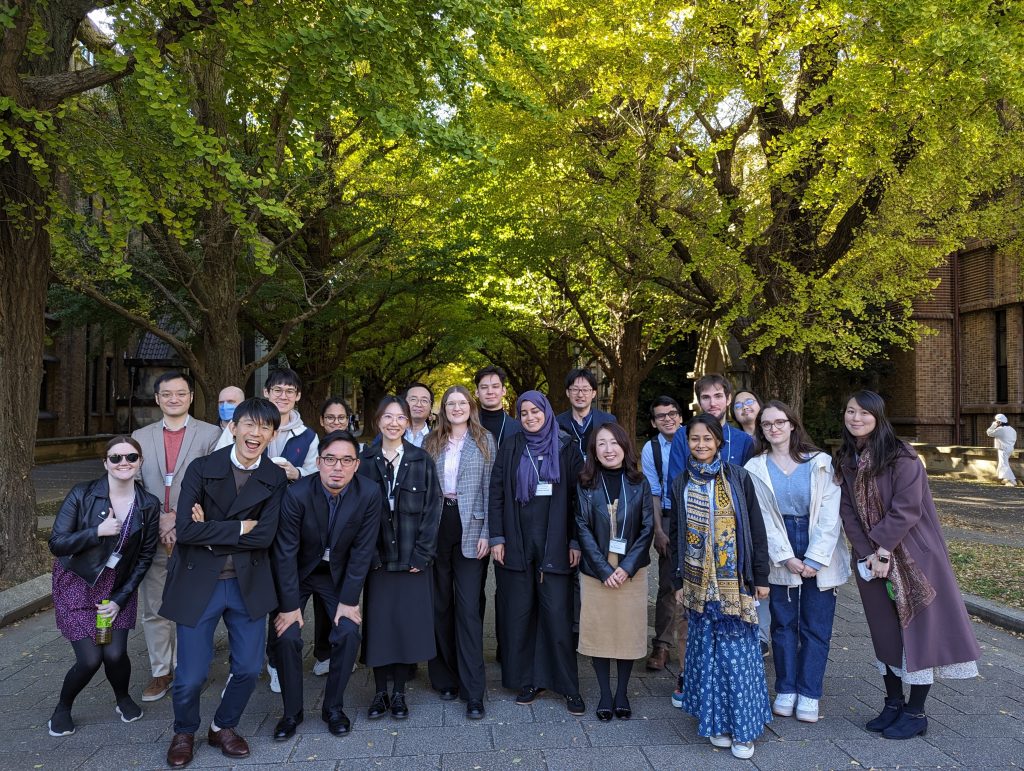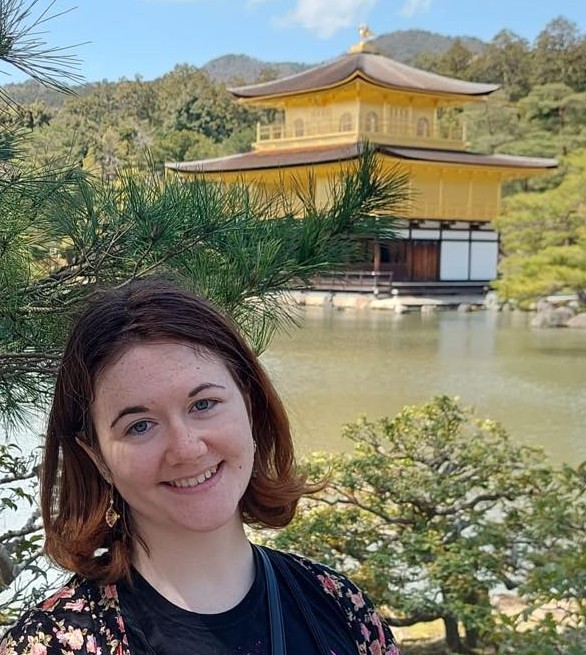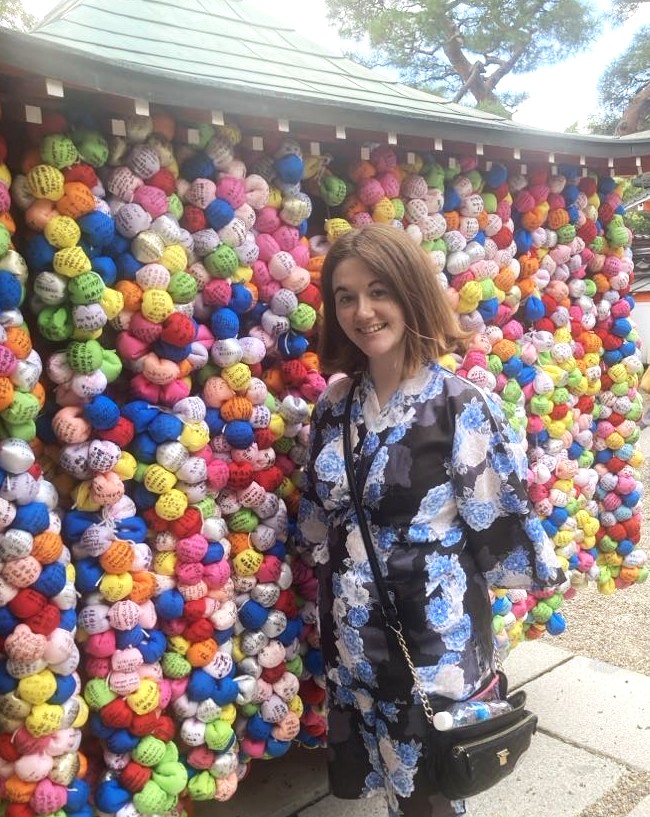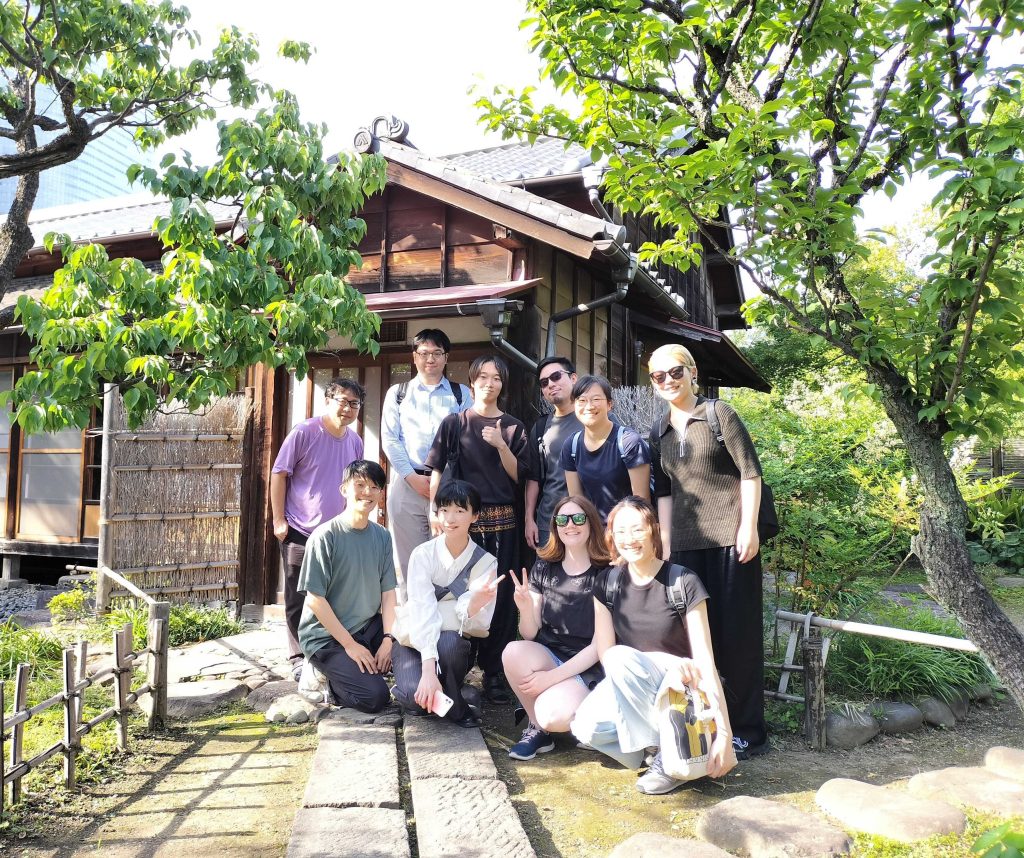Past members’ experiences
横江良祐 Ryosuke YOKOE

《Could you recap your activities and achievements at RUBiC for us?》
I joined RUBiC after starting a research fellowship with JSPS in 2022 under the mentorship of Professor Koji Yamamoto. From the outset, RUBiC provided me with opportunities to present my own research, whether in the form of conference papers or plans of articles and to receive insightful feedback from peers and colleagues. Beyond presenting my work, I participated in sessions where other postgraduate and postdoctoral members of RUBiC shared their research, allowing me to provide comments and feedback.
RUBiC played a crucial role in shaping my research trajectory, as I received valuable advice not only on my presentations but also on broader aspects of my academic career. One of the more significant experiences was having a draft of my research article read and critiqued in-depth by my peers, which undoubtedly contributed to its overall improvement.
《What’s the next step for you? Could you briefly describe your current/future goals? How did your time at RUBiC prepare you for the next chapter?》
RUBiC served as an important bridge in my career, particularly as I transitioned into Japanese academia after spending my academic career in Britain. It gradually integrated me into Japan’s unique research contexts, as it played a major role in refining my academic focus within the field of business history. Following my time at RUBiC, I secured a position at Hitotsubashi University’s Faculty of Business Administration.
《Could you say a few words about your experience at RUBiC? Any words of advice for future potential visitors?》

RUBiC is a welcoming and intellectually stimulating community that brings together scholars from diverse backgrounds who approach historical topics from a range of fields. While many discussions engage with business and economic history, members also incorporate a variety of methodological and disciplinary approaches, making it an exceptionally diverse research environment.
In addition to academic activities, RUBiC hosts frequent networking opportunities and research retreats, allowing members to build lasting professional and personal connections. This makes RUBiC a great environment for early-career researchers looking to find networks in Japan. For potential postdoctoral researchers from around the world, I highly recommend RUBiC as an ideal place to acquaint yourself with an internationally oriented research community in the country.
-February 2025
Nora Baker

《Could you recap your activities and achievements at RUBiC for us?》
Fresh from completing my doctoral studies at the University of Oxford, I came to Japan in September 2023, and spent eleven months in total as a postdoctoral affiliate of the RUBiC group. I enjoyed attending and presenting at regular research seminars and away days. I received valuable feedback from colleagues on my own research, and was also fascinated to learn about the diverse range of topics studied by other members of the group. I believe that this diversity is one of RUBiC’s great strengths. One week we might be treated to a presentation on psychiatric medicine in nineteenth-century China, the next we could be learning about alcohol sales and advertising in Britain. Whatever the topic, the RUBiC seminars provided a friendly and supportive environment to test out and discuss new ideas. These seminars were furthermore excellent spaces in which to practise my Japanese, and I am very grateful to my colleagues for the patience they showed me as I stumbled my way through learning the language. Thanks in no small part to their help and encouragement, I was able to pass the JLPT exam at N3 level after just under a year of regular study.

I also appreciated the opportunity to attend the PoETS, or Political Economy Tokyo Seminars, organised by members of RUBiC. PoETS invites a number of eminent scholars from around the world as guest speakers, and runs its sessions in hybrid (online/in-person) format.
During my time in Japan, I also had the opportunity to organize a two-day international conference, ‘Societal Sidelines. Exclusion and Resilience in the Early Modern World’, which took place at the University of Tokyo in July 2024. The University’s administrative staff, along with Prof. Yamamoto and Genji Yasuhira, of Kyoto University, assisted me in welcoming researchers from over fifteen different countries to participate in this hybrid event, held simultaneously via Zoom and in Kojima Hall. We received funding for this event from CIRJE (the Center for International Research on the Japanese Economy).
《What’s the next step for you? Could you briefly describe your current/future goals? How did your time at RUBiC prepare you for the next chapter?》

I am currently undertaking a two-year postdoctoral fellowship at the Université Libre de Bruxelles (Free University of Brussels) in Belgium. My time in Japan enabled me to hone and refine my second monograph project, and I have made a number of methodological and thematic adjustments thanks to feedback received from my colleagues at RUBiC. Working as a JSPS fellow also helped me become acquainted with the highly independent nature of postdoctoral work, and as such, I feel that I have been placed in good stead for my future academic career.
-February 2025
大和愛采 Narusa YAMATO
《Could you recap your activities and achievements at RUBiC for us?》

I am Narusa Yamato, a fifth-year Ph.D. student in Stanford University’s Department of History. I was affiliated with RuBic for several months when I was conducting my dissertation field work in Japan. Tentatively titled Milk for the Nation: A History of the Japanese Dairy Industry, 1854-1952, my dissertation explores how cow’s milk was commodified in the Japanese nation and empire. In particular, my project examines how imperialism and capitalism were intertwined. Because of this focus, my dissertation requires a diverse range of primary sources from corporate, regional, and national archives.
Being affiliated with RuBic greatly assisted me in this ambitious endeavor by offering a base in Tokyo and granting me access to the University of Tokyo’s Economic Department Library. The library was incredibly helpful because it offered a plethora of primary and secondary sources and because the interlibrary loan gave me access to materials in distant prefectures. I cannot thank the kind and attentive librarians enough for all their generous help. Aside from conducting research, I attended the weekly seminars run by Professor Koji Yamamoto. Composed of his masters, doctoral, and post-doctoral students, his seminar provided a platform for students, especially master’s students, to develop their research. Leveraging my experience supervising students at Stanford as a TA and instructor, developing my expertise in material history, and completing a master’s thesis at Harvard University, I engaged in academically stimulating discussions, offering suggestions to nurture their projects. My dissertation project also benefited from the fresh insights. I appreciate Professor Yamamoto and his students for warmly welcoming me to their intellectually vibrant community.
《What’s the next step for you? Could you briefly describe your current/future goals? How did your time at RUBiC prepare you for the next chapter?》
I now returned to Stanford to write my dissertation. The fruitful time I spent in Japan enabled me to collect a substantial amount of sources. I also feel that taking an active part in the weekly seminars sharpened my skills not only as a researcher but also as a mentor. Going forward, I would like to mobilize these skills for my future career. I encourage future researchers affiliated with RuBic to take advantage of the rich academic resources of the university and to immerse themselves in the intellectual environment of the community.
-March 2024
Lillian Tsay 蔡暁林(サイ ギョウリン)
《Could you recap your activities and achievements at RUBiC for us?》

At RUBiC, I primarily participated in Professor Yamamoto’s seminar, where I not only learned about the impressive research of my junior colleagues but also received feedback on my own project. I have honed my presentation skills and workshopped my grant proposals, all of which received very positive feedback from students with diverse backgrounds. As a PhD candidate, I also had the rare opportunity to mentor some master’s students in the seminar. Furthermore, I attended numerous events organized by the Historian’s Workshop, including talks by invited speakers and the “Research Showcase.” Participating in these events had exposed me to diverse topics in Japanese academia, which was invaluable for my development as a scholar.Thanks to generous funding from the university, I had the opportunity to co-organize a symposium with two colleagues at RUBiC. Titled “Navigating Commodities: Production, Markets, and Consumption in History,” the symposium received a large number of applications. We selected 14 excellent papers covering various aspects of commodity history from around the world and different time periods to be presented in Tokyo. This was a fantastic experience as a graduate student, and I greatly benefited from the opportunity to organize this symposium alongside my esteemed colleagues at RUBiC.

《What’s the next step for you? Could you briefly describe your current/future goals? How did your time at RUBiC prepare you for the next chapter?》
After my visit to RUBiC, I returned to Taiwan and am currently a visiting student at the Institute of Modern History, Academia Sinica. I will conduct research and complete my dissertation during my time here. While in Japan with RUBiC, I spent the year gathering materials for my dissertation and wrote several sample chapters. I also had the opportunity to refine my Japanese language skills and present my work at conferences in Japan. I appreciate these experiences as a graduate student specializing in Japan studies in the U.S.
《Could you say a few words about your experience at RUBiC? Any words of advice for future potential visitors?》
I have a very positive experience at RUBiC. It is a very friendly and global community. I would say that don’t hesitate to share your work even with people outside of your field. If you speak Japanese, it is also a good opportunity to practice! Also make sure that you take advantage of the University of Tokyo’s library resources and explore the amazing Tokyo.
-March 2024